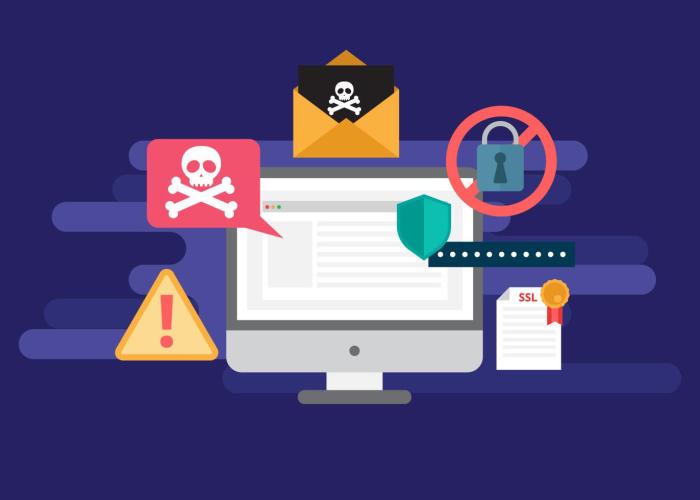As crypto security measures take the spotlight, get ready to dive into a world where protecting your digital assets is the name of the game. From encryption to multi-factor authentication, we’ll explore the ins and outs of keeping your crypto safe and sound.
In this digital age, where threats loom large, understanding the importance of robust security measures is key to navigating the crypto landscape with confidence.
Importance of Crypto Security Measures
Ensuring strong security measures in the crypto space is absolutely crucial in order to protect users’ assets and maintain trust in the industry.
Examples of Significant Security Breaches
Over the years, there have been several significant security breaches in the crypto space that have had a major impact on users and the industry as a whole. One notable example is the Mt. Gox exchange hack in 2014, where millions of dollars’ worth of Bitcoin were stolen, leading to the exchange filing for bankruptcy. This incident not only resulted in financial losses for users but also eroded trust in the security of crypto exchanges.
Another example is the hack of the DAO (Decentralized Autonomous Organization) in 2016, where a vulnerability in the smart contract code was exploited, leading to the theft of over $50 million worth of Ether. This incident highlighted the importance of conducting thorough security audits and testing smart contracts before deploying them on the blockchain.
Building Trust Among Users and Investors
By implementing robust security measures, crypto companies can build trust among users and investors, demonstrating their commitment to safeguarding assets and protecting sensitive information. This trust is essential for the widespread adoption of cryptocurrency and blockchain technology, as users need to feel confident that their funds are secure and protected from malicious actors.
Types of Crypto Security Measures

When it comes to protecting your crypto assets, there are several security measures that you can implement to safeguard your investments. These measures help prevent unauthorized access and protect your digital currencies from cyber threats.
Encryption
Encryption is a crucial security measure in the crypto industry. It involves converting sensitive information into a code that can only be deciphered with the correct encryption key. By encrypting your data, you can ensure that your transactions and personal information are secure from hackers and cybercriminals.
Multi-Factor Authentication
Multi-factor authentication (MFA) adds an extra layer of security by requiring users to provide multiple forms of verification before accessing their accounts. This typically includes something you know (like a password), something you have (like a mobile device), and something you are (like a fingerprint or facial recognition). MFA helps prevent unauthorized access even if your password is compromised.
Cold Storage vs. Hot Wallets
Cold storage and hot wallets are two common methods of storing crypto assets. Cold storage refers to keeping your digital currencies offline, usually on a hardware wallet or a paper wallet. This method is highly secure as it is not connected to the internet, making it less vulnerable to cyber attacks. On the other hand, hot wallets are connected to the internet and are more convenient for frequent trading. However, they are more susceptible to hacking attempts.
Regular Security Audits and Updates
Regular security audits and updates are essential to prevent vulnerabilities and strengthen your crypto security measures. By conducting routine audits, you can identify potential weaknesses in your security protocols and take necessary actions to mitigate risks. Additionally, staying updated with the latest security patches and software updates helps protect your assets from evolving cyber threats.
Implementing Best Practices
When it comes to enhancing crypto security, there are several best practices individuals can follow to safeguard their assets and information.
Using Hardware Wallets and Secure Passwords
One of the most effective ways to protect your crypto assets is by using hardware wallets. These physical devices store your private keys offline, making it much harder for hackers to access your funds. Additionally, creating secure passwords that are unique and complex adds an extra layer of security to your accounts.
Secure Networks and VPNs
It is crucial to ensure that you are using a secure network when conducting crypto transactions. Public Wi-Fi networks can be vulnerable to attacks, so it is recommended to use a virtual private network (VPN) to encrypt your data and protect your privacy.
Setting Up Two-Factor Authentication
Two-factor authentication (2FA) adds an extra level of security to your crypto accounts by requiring a second form of verification in addition to your password. This can be in the form of a text message, authenticator app, or hardware token, making it much harder for unauthorized users to gain access to your accounts.
Future Trends in Crypto Security

As technology continues to evolve, the future of crypto security will be influenced by advancements in blockchain and AI technologies. These developments will shape the way security measures are implemented to protect digital assets in the crypto space.
Impact of Advancements in Technologies, Crypto security measures
- Blockchain technology will enhance the transparency and immutability of transactions, making it harder for cybercriminals to manipulate data.
- AI algorithms can be utilized to detect anomalies and potential security breaches in real-time, strengthening defense mechanisms against cyber attacks.
Potential Emergence of Biometric Security Features
- Biometric security features such as fingerprint scanning or facial recognition could add an extra layer of protection to crypto wallets, ensuring only authorized users can access their funds.
- These biometric measures are more secure than traditional passwords or PINs, reducing the risk of unauthorized access to cryptocurrency holdings.
Decentralized Security Models
- Decentralized security models distribute security responsibilities across a network of nodes, reducing the risk of a single point of failure.
- By decentralizing security measures, the crypto ecosystem becomes more resilient to cyber attacks and external threats, safeguarding digital assets effectively.